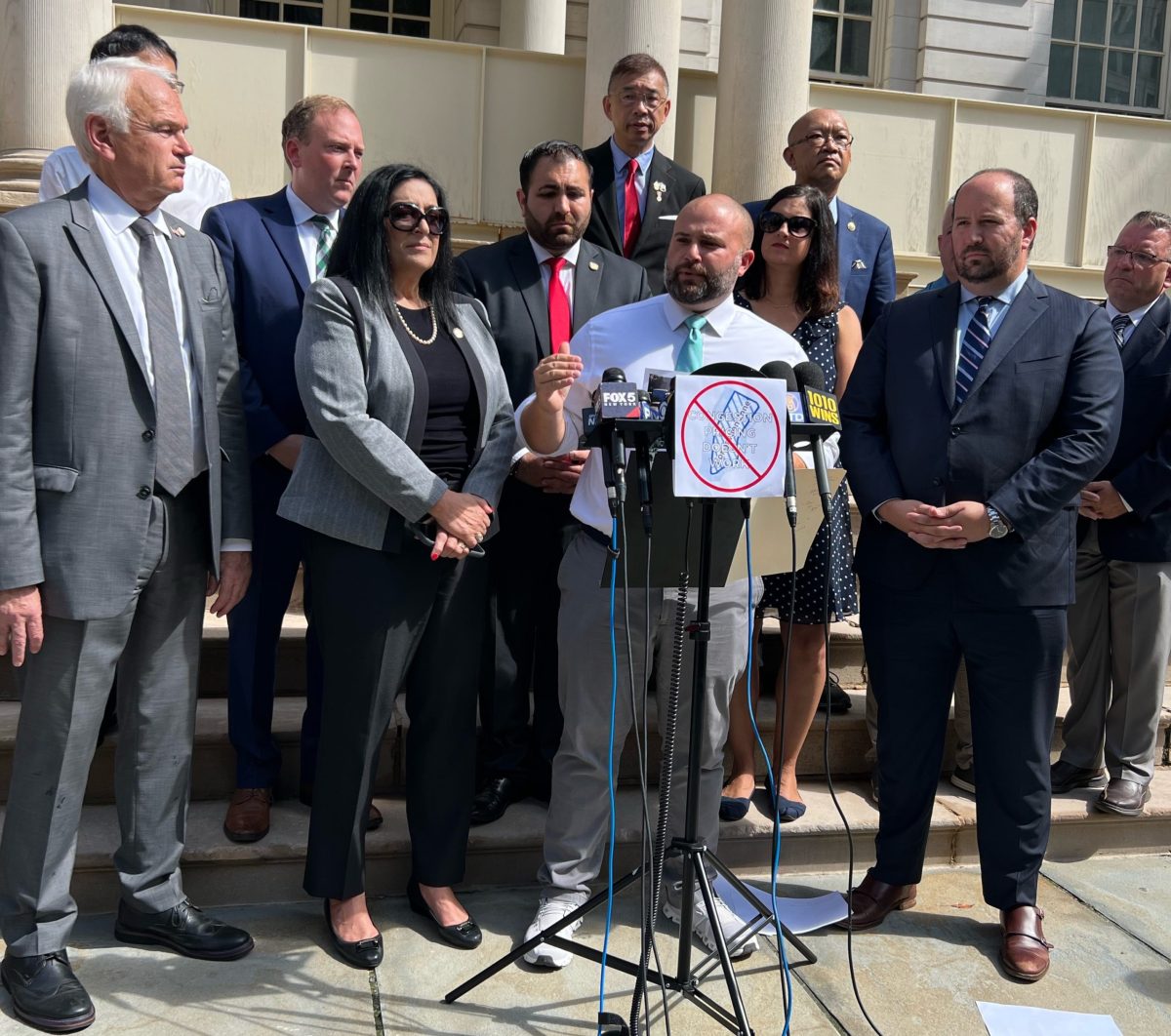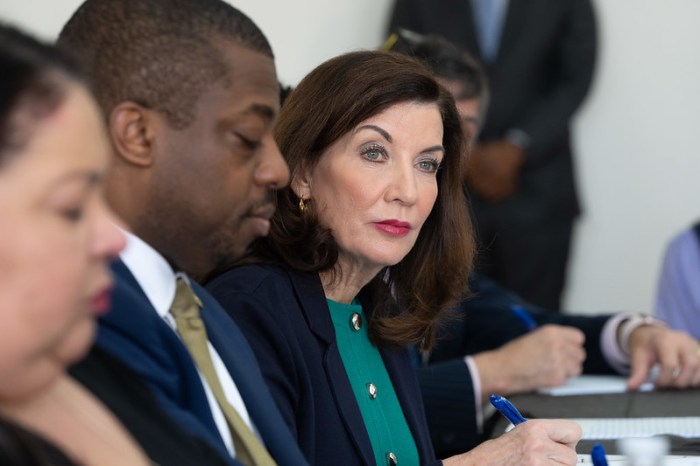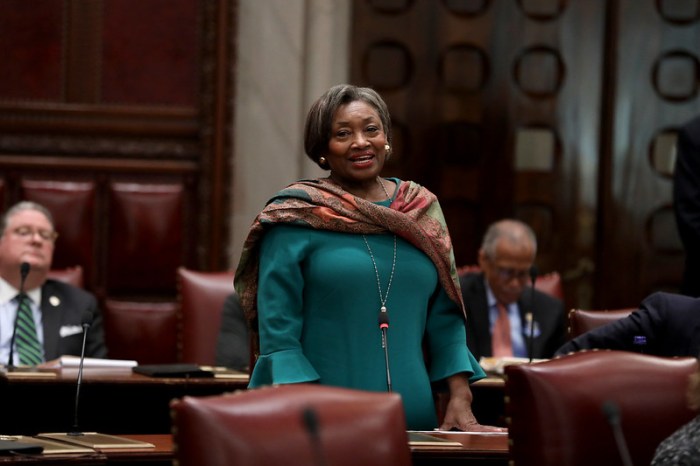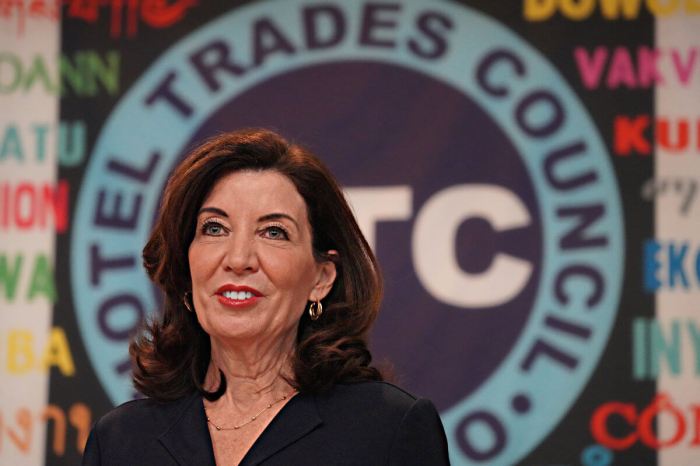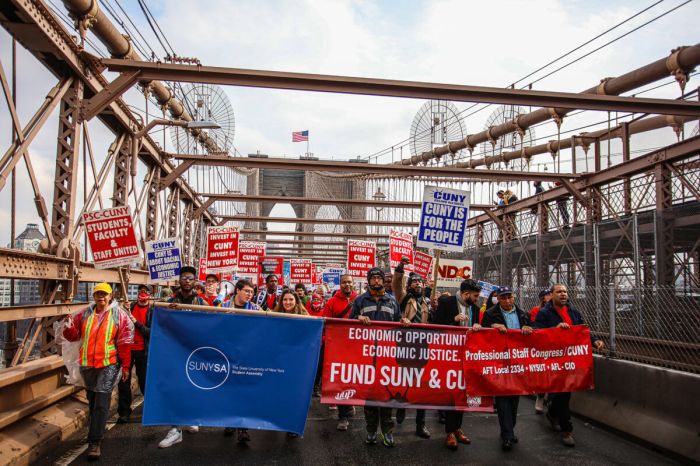A bipartisan group of 20 elected officials Monday ramped up the pressure on Governor Kathy Hochul Monday to withdraw her support of the controversial congestion pricing plan to charge motorists tolls to drive into the Manhattan Central Business District (CBD).
The city, state and federal lawmakers sent the governor a five-page letter on why she should withdraw her support, detailing the many ways the congestion pricing scheme will harm their constituents, particularly low-income and outer borough residents.
The lawmakers on both sides of the aisle who penned the letter included several from Staten Island, Brooklyn and Queens. It also comes on the heels of U.S. Rep. Richie Torres (D-Bronx) slamming the program because studies show it will add congestion on lower-income Bronx streets.
Under the plan, motorists entering Manhattan below 61st Street would pay anywhere from $9-$23 depending on the tolling scenarios, which on paper will bring in $1 billion in revenue for the cash-strapped Metropolitan Transportation Authority (MTA). The money will go towards much-needed upgrades, like subway signal modernization, accessibility, and an extension of the Second Avenue Subway.
The letter cited evidence of how a similar plan in London – in which the city modeled their congestion pricing plan – actually worsened traffic conditions while failing to provide the revenue or transit improvements that were promised.
“According to data from London’s Department for Transport (DfT) data, there are 5 million more vehicles on London roads than when the congestion pricing was first implemented 20 years ago. That’s a near 20 percent increase in people choosing to drive. That is a sea change in transportation behavior, just not the one that purveyors of London’s congestion pricing program were selling,” the lawmakers wrote.
“Congestion charge payments in London accounted for £232m (about $275 million) in revenue in 2021, or less than four percent of the total revenue for Transport for London (TfL), the city’s public transportation agency. The city’s congestion charge has failed to generate enough revenue to help TfL survive a precipitous drop in ridership and an economic downturn. The agency recently needed a $6 billion bailout from the federal government just to stay afloat.”
The letter also cited studies of the 25 largest cities in the world which found that what gets people out of their cars is proximity to viable public transportation. “In other words, congestion pricing benefits the few, fortunate residents who have the privilege of choosing between driving or a short walk to a train station, while most others are simply stuck paying the high toll of driving,” they wrote.
“Those traveling outside the CBD will see no reduction, and likely higher traffic volumes, despite the overwhelming number of New Yorkers who face congestion in Brooklyn, Queens, Staten Island, the Bronx, Nassau on Long Island, the Hudson Valley, New Jersey, and Connecticut,” they wrote.
Hochul did not respond to the letter directly. Instead, a spokesperson sent the transcript from an Aug. 15 press conference, in which Hochul said she is not reconsidering the plan.
“We’re the first generation to really see the impacts [of climate change], we’re the last generation that can really do something about it — this is what we’re doing about it,” Hochul said.


